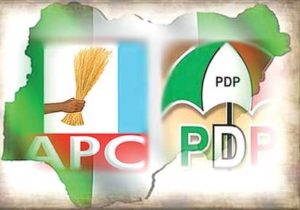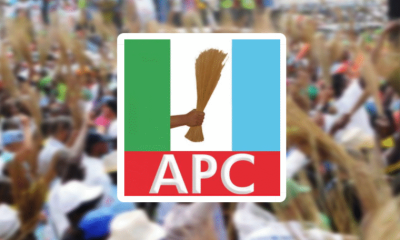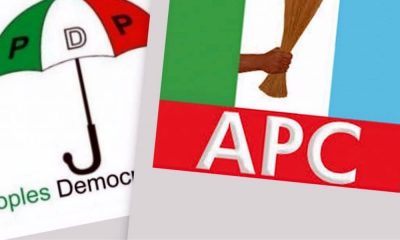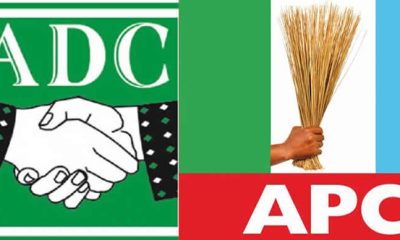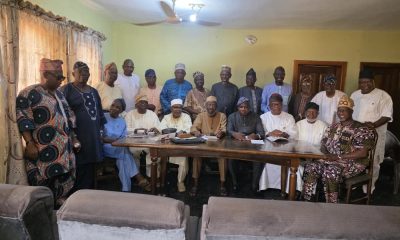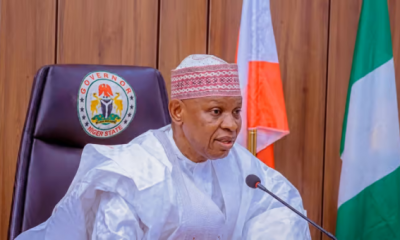News
(TuesdayRapAround) 2019: Nigeria And Gale of Defections
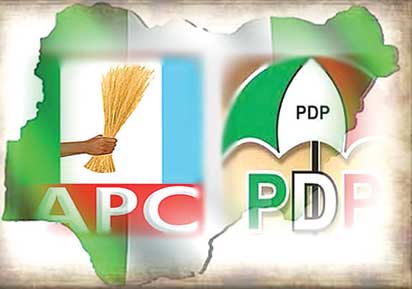
The last may not have been heard as preparation towards the 2019 general elections hots up.
In recent times, defection and counter defection from and across various political parties in the country have been recorded. Interestingly, one striking feature that characterises most cases of such defections, was – ‘having consulted widely’, they have decided to pitch their tent with where they are either accepted or respected/recognised to truly serve their fatherland.
While it is a welcome development to consult with the people/stakeholders – specifically to feel the pulse of majority about any particular decision, it has become worrisome why such laudable consultations are usually not being considered or carried out when important state or national matters are to be attended to.
In fact, a handful of those leading the race in the defection consultation brouhaha, would ordinarily have jumped at certain conclusion on issues bothering on the general public without sparing a thought to hear people out about such an important matter.
The question is – are there true, genuine or any workable political ideologies in Nigeria? Sure, the ways of thinking, planning and policy formulations of the various political parties are not the same. Individual ideologies sometimes, are at variance with whatever the parties may have put in place. This, no doubt, is the source of most of the controversies that causes confusion in the country.
In the 58 years of Nigeria’s independence, different political systems have been tried and implemented. But the lack of clear-cut ideologies, selfish interests of political gladiators, failure to pay attention to genuine, pressing demands in the country, flagrant abuse of constitutional provisions, abuse of rule of law and human rights are our greatest undoing.
What we have today are mere resolutions and reasoning of few opportunists, individuals who constantly but shameless and despicably imposed personal agenda (termed consensus decision) on the populace.
Truly, Nigeria’s return to democracy in 1999 ushered in a great deal of hope of democratic dividend and heralded a rare opportunity for the country to launch a new democratic strategy, after years of military dictatorship.
The emergence of multiparty democracy in Nigeria since 1999 was seen as a major breakthrough in the democratic process. However, the way and manner politicians in Nigeria in recent times cross-carpet from one party to the other has not only constituted democratic nuisance, but has continued to raise serious concern among political observers and participants in Nigeria. This have lend credence to lack of clear ideologies and manifesto among political parties in Nigeria.
It has been argued that one of the issues that has contributed to this unfortunate development in Nigeria is lack of internal democracy within political parties.
In Nigeria, for instance, recognition of candidates for nomination and selection for primary elections depends on the strength of the candidate in area of economic and political power, without any due consideration of the integrity and capability/capacity of the candidate involved.
Where this happens, the country suffers for it. Because when a candidate, just because he has strong financial muscle, is foisted on the people, in the long run governance is rendered ineffective and useless due to wrong and unpopular policies; the economy is made to suffer paralysis; and the nation at large suffers for it.
The spate of defections and its implications on Nigeria’s democracy has raised a fundamental question on the sustainability of democracy in Nigeria. This no doubt is at variance with how politics is played in developed nations of the world.
There are laws that prohibit this act in most countries. It is not that there are no laws in Nigeria that prohibit defection. There are provisions, of course, but the deficiency, confusion the nation’s constitution have rendered such provisions impracticable and or meaningless.
When a politician is defeated at the poll, he or she won’t let the matter rest. Another round of battle begins in the court of law. If and when he also lose the legal battle, instances have shown where such persons turned themselves to antagonists, criticising every bit, steps taken by the ruling class – all year round. Little wonder politics is taken as a full-time job in Nigeria.
As such, as Nigeria can boast of several hundreds of thousands full-time politicians, the more damages their existence have caused the country politically, economically, socially, security-wise and development-wise.
Because of lack of virile ideologies and workable manifestoes, Nigeria has suffered untold policy somersaults. No thanks to visionless leadership with lack of cohesion, and managerial skills.
Democracy is a system of government that encapsulates three vital components: meaningful competition among individuals for public office using political parties at periodic intervals, inclusive participation of the citizens in the selection of leaders and policies formation/implementation and considerable level of civil and political liberties.
How has Nigeria faired in these three vital components? Are Nigerians truly allowed to enjoy meaningful competition? Is there anything like inclusiveness, mass participation? In policy formulation and implementation, what role does common man on the street plays?
Everything is top-down.
Democracy cannot function effectively and efficiently without political parties; and individual belonging to the parties of their choice where they can freely express their opinion. Democratic success is measured on the extent to which people have unrestrained access to participation in the policy processes.
What really gives democracy meaning is the right of citizens to freely participate, choose their leaders and contribute to governance. The extent of citizens’ involvement in decision-making relates directly to the type of policies government make. The absence of the above elements retards any democratic efforts.
The alarming rate of defection of politicians and instability within political parties occasioned by lack of internal democracy tends to obstruct genuine democratic sustenance in Nigeria.
As such, the development continues to create uncertainties, distrust, confusion and policy somersaults. The recent development in the country, has thus far, shown that the gladiators are usually moved by what suits them and not necessarily the interest of the populace.
The lesson for the people here is for us to be able to know who truly has the interest of the nation at heart.
Nigeria cannot afford not to elect purposeful leadership this time around – the type that goes and identify with the bigger picture (society at large) and NOT the one with parochial interest.
-

 News4 days ago
News4 days agoInsecurity: Kogi Schools Resume On Monday
-

 Opinion4 days ago
Opinion4 days agoDon’t Pull the Plug: Why Nigerians Are Pleading for the U.S. to Extend Its Police Training Program — and Why It Must Synergize With New Military Arrivals
-

 Crime3 days ago
Crime3 days agoVigilante Reportedly Shoots Colleague Dead In Plateau
-
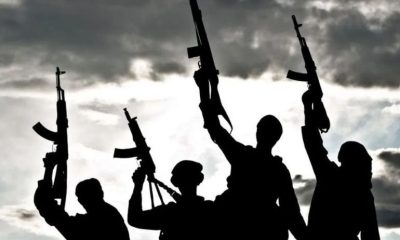
 Crime4 days ago
Crime4 days agoMan Shot Dead In Ambush Along Jol-Sho Road In Plateau


